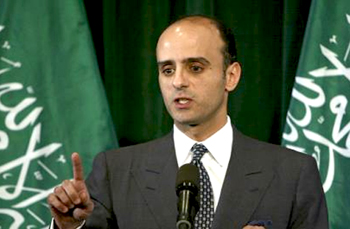New York, Sep 28: Saudi Arabia firmly rejected Iran’s criticism of its handling of the Haj pilgrimage Saturday after Tehran demanded an inquiry into the Mina stampede.

Al-Jubeir, delivering remarks along US Secretary of State John Kerry, insisted that Saudi Arabia was on top of the situation.
“The Kingdom has had a long history of spending tremendous resources to care for the pilgrimage to ensure that the pilgrims who come there have a successful pilgrimage,” he said.
“And we will reveal the facts when they emerge. And we will not hold anything back. If mistakes were made, who made them will be held accountable,” Al-Jubeir said.
“And we will make sure that we will learn from this and we will make sure that it doesn’t happen again. I want to repeat again this is not a situation with which to play politics.
“I would hope Iranian leaders would be more sensible and more thoughtful with regards to those who perished in this tragedy, and wait until we see the results of the investigation.”
Meanwhile, French President Francois Hollande told Iranian President Hassan Rouhani that the Haj tragedy should not increase tension between Saudi Arabia and Iran, Reuters said quoting a diplomatic source.
Prominent Iranian writer and academic Sadegh Zibakalam criticized statements made by Iranian officials on the Mina incident saying that they stemmed from events in Syria and Yemen.
“As opposed to other Muslims, ours were the only reactions aimed at pre-judging who is responsible for the Mina tragedy,” he was quoted by Al Arabiya.net as saying.
“The response (from Iranian officials) was based on unleashing anti-Arab sentiment that many Iranians bear. The horrible Mina incident has allowed Iranians to unload their anger onto Arabs,” he added.





Comments
The below article will provide sime basics on how to utilize video marketing.
Make your videos better wityh the feedback from your customers.
Video marketing should be a key component of your online marketing strategy.
my web sige script engage demo: http://wec.li/Loe6t
Add new comment